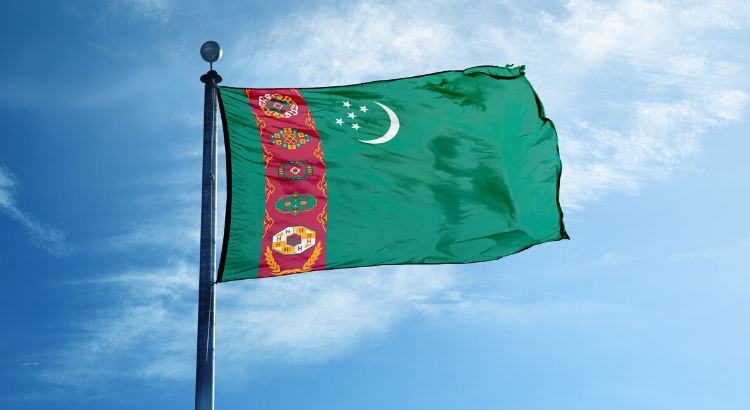The Prague city government lead by Zdeněk Hřib decided to terminate a sister city agreement with Beijing earlier this month, which according to the Chinese Foreign Ministry “seriously hurt the feelings of the Chinese people”. Consequently, Beijing Municipality Office declared, that the sister partnership with the Czech capital had been terminated with immediate effect and all official connections between the cities had been severed. While Czech netizens advocate human rights and freedom, the Chinese support the decision of the Beijing Municipality Government and some even call for retaliation.
In 2016, the cities of Prague and Beijing signed a twin city agreement establishing cultural and economic cooperation. This happened on the background of warming of the Czech-Chinese relations precipitated by the new China policy of the government led by the Czech social democrats and the election of Miloš Zeman, a prominent proponent of relations with China, as President. During his historical visit to the Czech Republic in 2016, the Chinese President Xi Jinping was even awarded a key to the city of Prague.
However, the Czech-Chinese relationship began to creak not long after, with Prague becoming the main battleground. In autumn 2018, the new Prague City Council was formed, headed by Mayor Zdeněk Hřib from the Pirate Party. Mr Hřib upset Beijing with a succession of moves related to Taiwan and Tibet, such as meeting with Taiwanese President Tsai Ing-wen or the head of Tibetan Government in Exile Lobsang Sangay. Moreover, in January he proposed to amend the partnership agreement with Beijing, demanding to remove an article containing Prague’s support for the One China Policy. According to him, the clause was imposed on Prague and had no place in the agreement between two cities that should stay apolitical.
After the Chinese side refused to renegotiate the agreement, the Prague City Council decided to revoke it on October 7. The Chinese Embassy in Prague responded to the city government’s decision via Facebook, calling on the representatives of Prague to change their attitude as soon as possible and “adapt to the trend of current development and historical progress and return to the right path that supports the development of bilateral relations”.
While the decision to cancel the sister city agreement was being moved to the Prague municipal assembly for a vote, the authorities in Beijing took action and announced the termination of the treaty and cancellation of all official relations. Beijing’s statement stressed that “the leaders of the new Prague coalition ignored the basic rules of international relations and international consensus, repeatedly acted in an inappropriate way and gave inadequate comments on China’s key interests in Taiwan and Tibet, which signifies gross interference in China’s internal affairs”. Prague then publicly accepted Beijing’s decision via its official Twitter account.
Prague: “Panda is not worth giving up on our values”
More than 500 comments appeared under the Chinese Embassy’s official statement on its Facebook profile. Many of the reactions did not discuss the issue per se but reflected the negative perception of the Chinese political regime in the Czech Republic. Some commenters simply shared Tibetan and Taiwanese flags or various GIF pictures of Winnie the Pooh, referencing his likeness to Chinese president Xi Jinping.
Others touched upon the status of Tibet and Taiwan or the current situation in Xinjiang and Hong Kong. Many pointed out the irony that the embassy published its official statement via Facebook which is not freely accessible in China.
This is not China, you have no right to dictate what the elected city government can or cannot do
Czech netizen
In general, most of the Czech comments on social media are supportive of the city government’s decision to terminate the partnership with Beijing. The move was applauded as a symbol of resistance against the authoritarian Chinese regime and fight for human rights.
“This is not China, you have no right to dictate what the elected city government can or cannot do,” says one of the comments. “Not only do I agree with the measure Prague has taken, but I also believe that the PRC’s policy towards Hong Kong is not right,” says one of the commenters. Another supporter summarizes his opinion saying that “pandas are not a good reason to give up on our principles”.
Of course, opinions of netizens expressing disapproval of the Prague City Hall can be found as well, mainly in the comment section under Facebook posts of the Czech Communist Party or the right-wing populist political party SPD. Some of the negative comments accuse the Prague government of dealing with inconsequential issues instead of solving the real problems plaguing Prague. Others argue that the move to cancel the agreement will hurt the country’s economic interests.
The Czech media paid great attention to the entire negotiation process on the removal of an article on One China Policy and the subsequent annulment of the sister city treaty by Prague. Many news media were also interested in the reactions of the Chinese side. All major websites of daily press quoted the Chinese Embassy’s urge for Prague to change its approach as soon as possible, otherwise “it will eventually hurt its own interests”.
Moreover, some media pointed out that, according to President Zeman, the end of the Prague-Beijing partnership may have “unpleasant consequences”. Mr Zeman said that within China’s retaliatory measures, it may suspend financing of the Czech football club Slavia or completely boycott the Czech Republic in terms of tourism and divert some flights away from Prague.
Another prognosis of this sort was published by the website of Czech daily MF Dnes, which quoted Mr. Kovanda, the chief economist of the Czech Fund, according to whom the disputes between Prague and Beijing will have an impact on Czech-Chinese trade and direct investments, which will eventually affect Czech GDP. The Czech Deputy Minister of Foreign Affairs Aleš Chmelař, however, questioned such a statement. As for tourism, according to the reports, both Prague and a small town of Cesky Krumlov, which enjoys great popularity among tourists from Asian countries, believe that the outflow of Chinese tourists could actually benefit them.
Beijing: “Intervention in China’s affairs must be punished”
The news of the cancellation of the Prague-Beijing partnership has also been discussed in China, although in a much more muted manner, outshined by the ongoing controversy over the NBA. The Chinese media mostly shared the statements of the Beijing’s government and China’s Embassy in the Czech Republic on the matter.
A more comprehensive picture of the whole situation is provided by Changjiang Ribao (长江日报) which calls the cancellation “extremely rare”. However, it also mostly quotes official statements, including a statement by a Chinese Foreign Ministry spokesman back from July of this year, stating that The Prague city government “has seriously hurt the feelings of the Chinese people and undermined bilateral relations”. The article also did not omit the fact that Zdeněk Hřib had previously spent some time in Taiwan during his studies and met with Tsai Ing-wen back in March 2019.
The English version of the Global Times (环球时报) also digs deeper into the issue. The article quotes Chinese expert on Sino-European relations Cui Hongjian, who claimed that “Prague’s action showed the city officials’ populist tendency”, and that they have acted “without considering what is beneficial for the people in the long term”. In this context, the article mentions the growing bilateral trade and the number of Chinese tourists in the Czech Republic, pointing out the benefits to the country.
Many Chinese netizens joined the comment sections under the news and on Weibo. A large part of the commenters were eager to search for more information about the matter and felt disappointed that the Chinese media did not provide them with clear background and timeline of the situation, explaining the Prague-Beijing quarrel. “What exactly happened?”, “which side terminated the agreement first?”, “what is the reason [for the cancellation]?”, many of the comments read.
Still, many of the netizens did not seem to be bothered by the news as they commented that the end of the partnership did not matter since “Prague cannot be compared to Beijing” and any concern about it is simply waste of time. In many people’s opinions, the break up between the Chinese and Czech capitals was of no significance as Prague “does not even deserve to be called a ‘city’” and in the end, it will be the Czech side which will regret its actions. Many commenters also questioned the importance of such agreements in general, calling them pointless.
One China Policy is a baseline which should be respected by other countries and those who choose not to recognize the principle should bear the consequences
Chinese netizen
The largest number of Chinese netizens, however, expressed anger and called for some form of retaliation. “We do not need ‘friends’ who will shake hands with us while holding a knife in another [hand],” reads one of the most popular comments under the Global Times’ notice about the agreement’s invalidation. “One China Policy is a baseline which should be respected by other countries and those who choose not to recognize the principle should bear the consequences”, reads another post.
Many commenters wondered how such a small country as the Czech Republic could dare to challenge China. “We should show [Prague] that today’s China is not China of 100 years ago!”, urged one commenter on Weibo. Some commenters were looking for concrete action. “How can I boycott [the Czech Republic]?”, asked several commenters, discussing what Czech products are in China that could be targeted, with some humorously proposing that the only option is the Czech “little mole”(famous cartoon character).
Of course, the views expressed by netizens are by no means a representative sample of the views of the general populace. Moreover, it should be also stressed out, that no actual commentary on the matter was provided to the Chinese public which was stuck only with Beijing’s and Chinese Embassy’s official statements.
None of the Chinese newspapers (nor the Czech media) mentioned for instance, that, reportedly, it was the Czech side which proposed the clause on One China Policy to be incorporated into the original twin city agreement. Moreover, no article touched upon Prague’s relationship with other Chinese cities as for example Shanghai and Guangzhou still maintain sister-city ties with the Czech capital. Yet, the agreement with Shanghai does not include One China Policy article as the Prague authorities pointed out several times.
In situations like this, Beijing usually continues to use the same official rhetoric stressing out that other countries interfere in China’s internal affairs and (thus) hurt the feelings of the Chinese people. This kind of voicing especially became a way of the Chinese government to express displeasure and to stir up the nationalist moods among the people and, too, provoke resentful reactions similar to those seen above.






